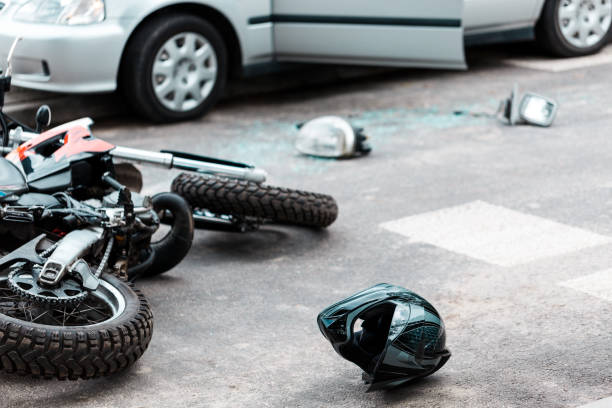Georgia Motorcycle Accident Claim Process Guide
A motorcycle crash can be overwhelming. To protect your health, your legal rights, and your potential compensation, it helps to understand the Georgia motorcycle accident claim process clearly. Below is a concise, practical walkthrough you can follow from the moment the accident occurs to the final settlement stage.
1) At the Scene: Safety and Calling for Help
- Move to a safe area if possible.
- Call 911. Ask for police and medical responders.
- Do not admit fault or argue about responsibility.
- If safe, begin documenting the scene.
A police report is often essential in a Georgia motorcycle accident claim, so make sure officers document the crash.
2) Collect Evidence
Evidence strengthens your claim and reduces disputes later.
What to capture:
- Photos/videos of the scene, damage, injuries, weather, road conditions.
- Other driver’s license, insurance information, and license plate.
- Contact details of witnesses.
- Police officer’s name and report number.
Tip: Keep damaged gear (helmet, jacket, etc.) — it can support injury proof.
3) Seek Medical Attention and Document Injuries
Even if you feel fine, get checked. Some injuries appear later.
Key points:
- Tell medical providers the crash caused your symptoms.
- Keep copies of medical records, prescriptions, imaging, and bills.
- Track how injuries affect daily activities and work.
Medical documentation is central to proving damages in a motorcycle accident claim.
4) Notify Insurance and File the Claim
You typically notify:
- Your own insurance company
- The at-fault driver’s insurer
When speaking with insurance adjusters:
- Stick to basic facts.
- Avoid recorded statements until you understand your rights.
- Do not speculate on fault or injury severity.
Request claim numbers and keep communication records.
5) What Happens During the Insurance Review
The insurer will:
- Review the police report and medical records.
- Inspect vehicle damage.
- Possibly request statements or medical authorization.
You may experience:
- Low initial settlement offers
- Delays in response
- Arguments that you share fault
Stay patient, consistent with medical treatment, and organized with documents.
6) When an Attorney Becomes Helpful
Consider consulting a lawyer if:
- Injuries are moderate or severe.
- Medical bills are high.
- The insurer challenges fault.
- The settlement offer seems too low.
What attorneys typically handle:
- Gathering additional evidence and expert support.
- Calculating full damages (current and future).
- Writing and sending a demand letter.
- Negotiating with the insurer.
- Filing a lawsuit if settlement fails.
7) Settlement Negotiation and Litigation Path
The progression usually follows:
- Demand Package Sent Summary of injuries, bills, and requested compensation.
- Negotiation Back-and-forth offers between parties.
- Mediation (optional) Neutral mediator helps both sides agree.
- Lawsuit (if no agreement) Filed within Georgia’s statute of limitations.
- Discovery & Depositions
- Settlement Discussions Resume
- Trial (if still unresolved)
Most cases settle before trial, but every case varies.
8) Timeline: How Long Does It Usually Take?
- Simple cases: A few weeks to several months.
- Disputed or injury-heavy cases: Several months to 1–2+ years.
Factors affecting timing:
- Injury severity and treatment length.
- How clear fault is.
- How quickly documents are gathered.
- Whether litigation becomes necessary.
Practical Quick Checklist
Closing Note
The Georgia motorcycle accident claim process is manageable with:
- Clear documentation,
- Consistent medical treatment,
- Careful communication with insurers,
- And legal guidance when needed.
No need to rush. Protect your health first, your claim second.
